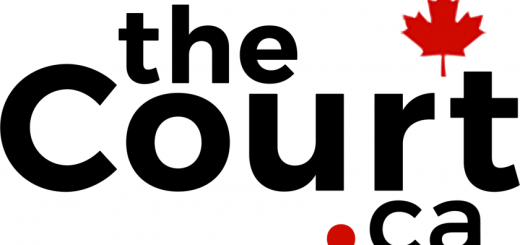Another Magical Day for the Supreme Court? British Columbia (A.G.). v. Christie
A few years ago I wanted to write an article on the Supreme Court of Canada’s (“SCC”) brilliance at “triangulation” – the term Bill Clinton used to signify coming up with a policy option somewhere in between two seemingly incompatible ideas. It seemed to me that the Court, like Clinton, constantly (and effortlessly) found ways through legal miasmas.
I had forgotten about my theory until the recent decision of British Columbia (Attorney General) v. Christie, 2007 SCC 21 [Christie]. The case involved the British Columbia Social Service Tax Amendment Act (No. 2), 1993, SBC 1993, c 24 that imposes a 7% tax on the fees billed by lawyers to their clients for legal services. Lawyer Dugal Christie challenged the tax on the basis that it infringed the unwritten constitutional principle of the rule of law by restricting access to counsel for some litigants. The extra cost of legal services for the poor would simply be too much. (It is worth noting that no other profession in B.C. is taxed in this fashion.)
Since the case was a direct attempt to use the unwritten principle of the rule of law to strike down a legislative provision, many thought that the SCC would finally have to confront the question of whether unwritten principles could be used as a sword to strike down legislation. There seemed to be little room for any sleight of hand by “triangulation”.
Not true. In another masterstroke of judicial creativity, the SCC found a way to dismiss the constitutional challenge of the legislation without really dealing with unwritten principles, except in the most cursory fashion. (The whole judgment is cursory, as a matter of fact.) While a slim majority of the BC Court of Appeal took over 14,000 words to argue for the unwritten principle of the rule of law to include a right to counsel, the SCC decided unanimously against this interpretation in little over 3000 words. And it is still by no means clear what our famous unwritten principles can or cannot do.
The SCC seemed to ignore the practical reality that the tax will affect some people more than others. Since it found that there is no “general constitutional right to counsel in proceedings before courts and tribunals dealing with rights and obligations” (para 27) some rights litigants in BC may have to represent themselves in the courts – obviously, the “some” will largely be the poor. The holding implies that the unwritten principles are not subject to a kind of “adverse effects” analysis.
The case is also further evidence of the SCC’s strange relationship with constitutional rights and British Columbia. In Eldridge v. British Columbia (A.G.), [1997] 3 SCR 624 [Eldridge], the SCC found that s. 15(1) of the Charter required that the BC government provide for sign language interpretation at hospitals because there was a “direct and precisely defined connection” between government policy and hospitals (Eldridge, para 51). In B.C. v. Imperial Tobacco Canada Ltd., [2005] 2 SCR 473, the SCC found that neither of the unwritten principles of judicial independence or the rule of law could be used to strike down legislation aimed at targeting tobacco manufacturers for health care costs – but the arguments, particularly on rule of law grounds, were relatively weak. Now, in Christie, the SCC confirms that the rule of law does not include anything more than three principles: that law is supreme; that it should exist and be published; and that it regulates the relationship between the state and the individual. Certainly, there is no room for the poor to get any special favours under this conception of the rule of law.
The shame in all this is that Christie felt compelled to frame the case as involving the issue of a general constitutional right to representation under the rule of law, as opposed to arguing that the tax discriminated against the impoverished. He did that because the poor have not fared well under the Charter (either under s. 7 or 15). Now the same is true with the unwritten principle of the rule of law (presumably, the same can now be said for other unwritten principles such as respect for minorities).
Determining how the public purse is spent is a type of zero-sum game – there is always a fixed amount of revenue available in any given year that must be divided up. After Eldridge, funding for interpretation would have to come from somewhere. I am sure it would be considered heresy if anyone suggested that the 7% charge on legal fees or amounts gained from successful tort claims against tobacco manufacturers may be used to foot the sign language interpretation bill. But who knows? And what if the amount of the tax was 20% instead of 7%? The Court doesn’t seem to think it matters.
Imagine if the Supreme Court of Canada said that the cost of tickets to professional hockey games does not affect your ability to ‘access’ hockey as a game, because you always have the ability to play for free on a backyard rink or lake. The analogy may be a little strained, partly because the business of professional hockey does not engage our constitution. It is unfortunate that not all of us can afford to attend a game, but that is one of the harsh realities of life. Not everyone can own a Porsche either. But the cost of having someone (like a lawyer) assist you with establishing your rights in court is, in my view, a lot closer to ensuring that you are able to communicate with your doctor if you are deaf than it is to hockey. At least it feels more constitutional. Maybe that kind of sixth sense could be the next new unwritten constitutional principle.







Join the conversation